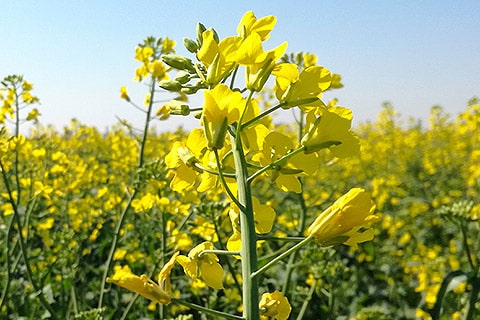Nuseed has added carinata as the fourth crop to its global portfolio. Carinata is grown as a cover crop and provides RSB certified best in class greenhouse reduction to biofuel processors, and non-GMO meal for animal feed without requiring additional farmland. Combined with its soil improvement and new market opportunity benefits for farm customers, Carinata is an ideal fit with Nuseed’s VALUE BEYOND YIELD® strategy; delivering plant-based solutions to farm and end-use customers, plus the Nuseed Value Chains to supply them.
Following an 18month pilot program in Argentina with the crop’s developer, Nuseed is now globally commercializing this high potential crop. Research, regulatory, business development and plant breeding experts on the Nuseed Carinata team are now working with Nuseed global regions in South America, North America, Australia, and Europe to commercialize and fully maximize the crop for both farm and end-use biofuels customers, through Nuseed’s Value Chain approach and global reach and R&D capabilities.
Nuseed plans to ramp up oil production over the next few years with a closed-loop contracting structure for farmers in major soybean growing regions, focused initially in South America.
Carinata is a scalable and sustainable oilseed cover crop that can be used to produce low-carbon fuel from one of the lowest carbon feedstocks available, carinata oil.
The proven technology has been used for sustainable aviation jet fuel by a number of international airlines, including Qantas and United Airlines. Carinata use in displacing petroleum diesel with low-carbon diesel is a proven innovation.
The proprietary low-carbon feedstock is certified by the Roundtable of Sustainable Biomaterials (RSB) for the European Renewable Energy Directive (RED) standard. It offers a solution to market leaders seeking feedstocks that deliver maximum GHG reductions in their low-carbon fuel use. A co-product of crushing carinata to extract the non-food oil is a high protein, non-GMO meal for animal feed.

